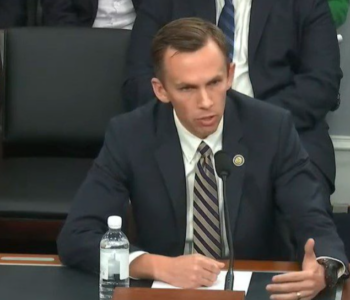 News
News
Jackson Public Schools’ JROTC program earns top marks
JACKSON, Miss. (WJTV) – According to a report released by State Auditor Shad White, the Junior Reserve Officer’s Training Corps (JROTC) at Jackson Public Schools (JPS) helps boost the graduation rates and ACT scores of its participants. Students in the program are also more likely to be accepted to college than other JPS students.
“Jackson’s JROTC is exactly what is needed right now—a strong program that teaches discipline and structure and gets real education results,” said White. “The students and the program director deserve a ton of credit for what they have achieved.”
The Office of the State Auditor studied JPS’s JROTC program by reviewing data, conducting interviews and reviewing the evaluations of the program conducted by a U.S. Army accreditation board.
Enrolled students take courses, engage in drill exercises and wear uniforms during JROTC class. They are also eligible to participate in extracurricular team activities like field trips and are required to perform community service.
According to the report, JROTC students at JPS perform better than other students on average. The report also shows JPS students enrolled in the JROTC program have a nearly 100% graduation rate, and over 95% are accepted to college.
The students also score an average of nearly three points higher on the ACT than other JPS students and have an absentee rate less than one-ninth the JPS average.
The U.S. Army Cadet Command at Fort Knox evaluates each JROTC program in the country and rates them on factors like education, training, personnel, and operations. In 2020, evaluators found the JROTC programs at all seven four-year high schools in the JPS system attained the highest possible national rating. The report shows JPS’s high marks were also obtained even in years with budget cuts. Interviewees attributed this success to the program director, Colonel Paul Willis (ret.).
“What I love about JROTC, aside from the values it instills and its results, is the fact that the program is audited by an outside body from Fort Knox,” said White. “It’s not often that you see a supplemental school program that is reviewed by a national accreditation team. We need to expand these sorts of data-backed education programs here in Mississippi.”
The report can be found online at the Auditor’s website.









